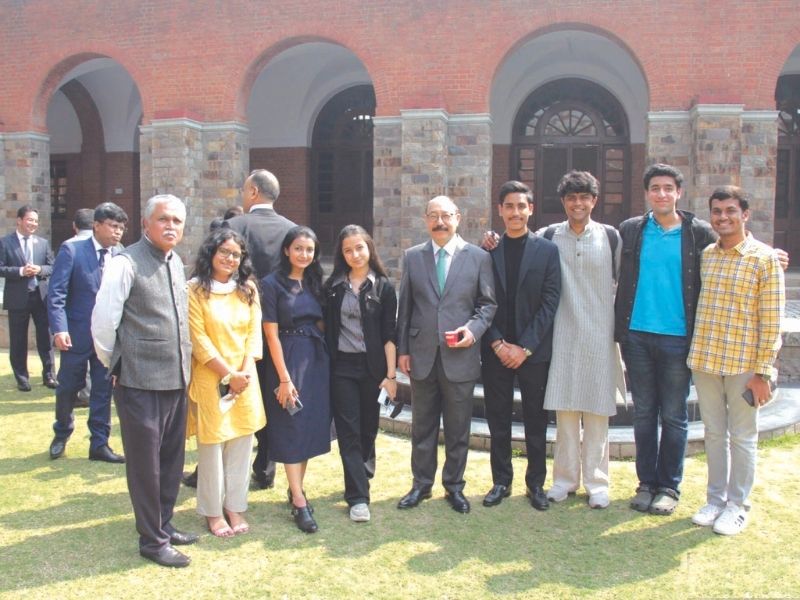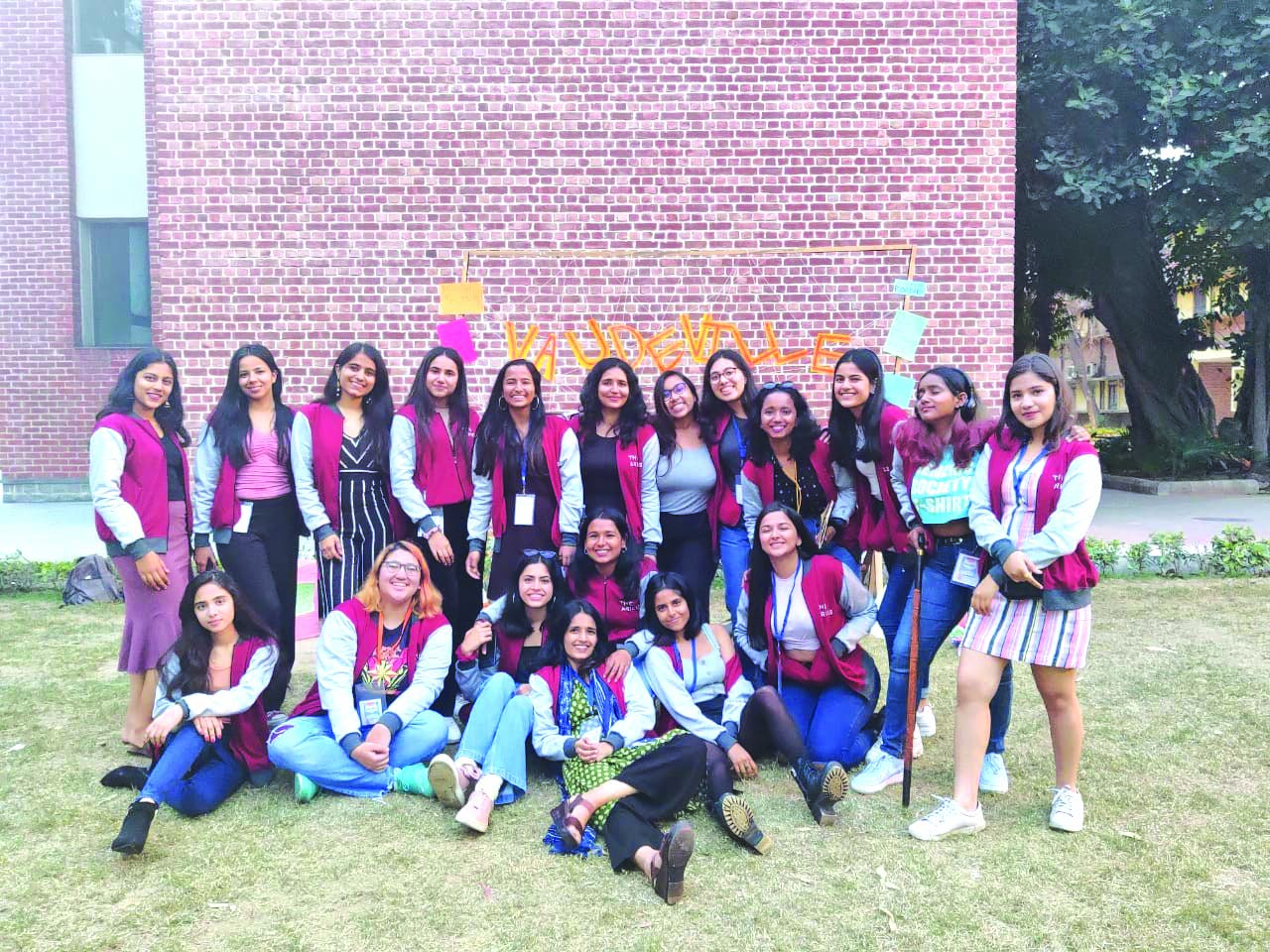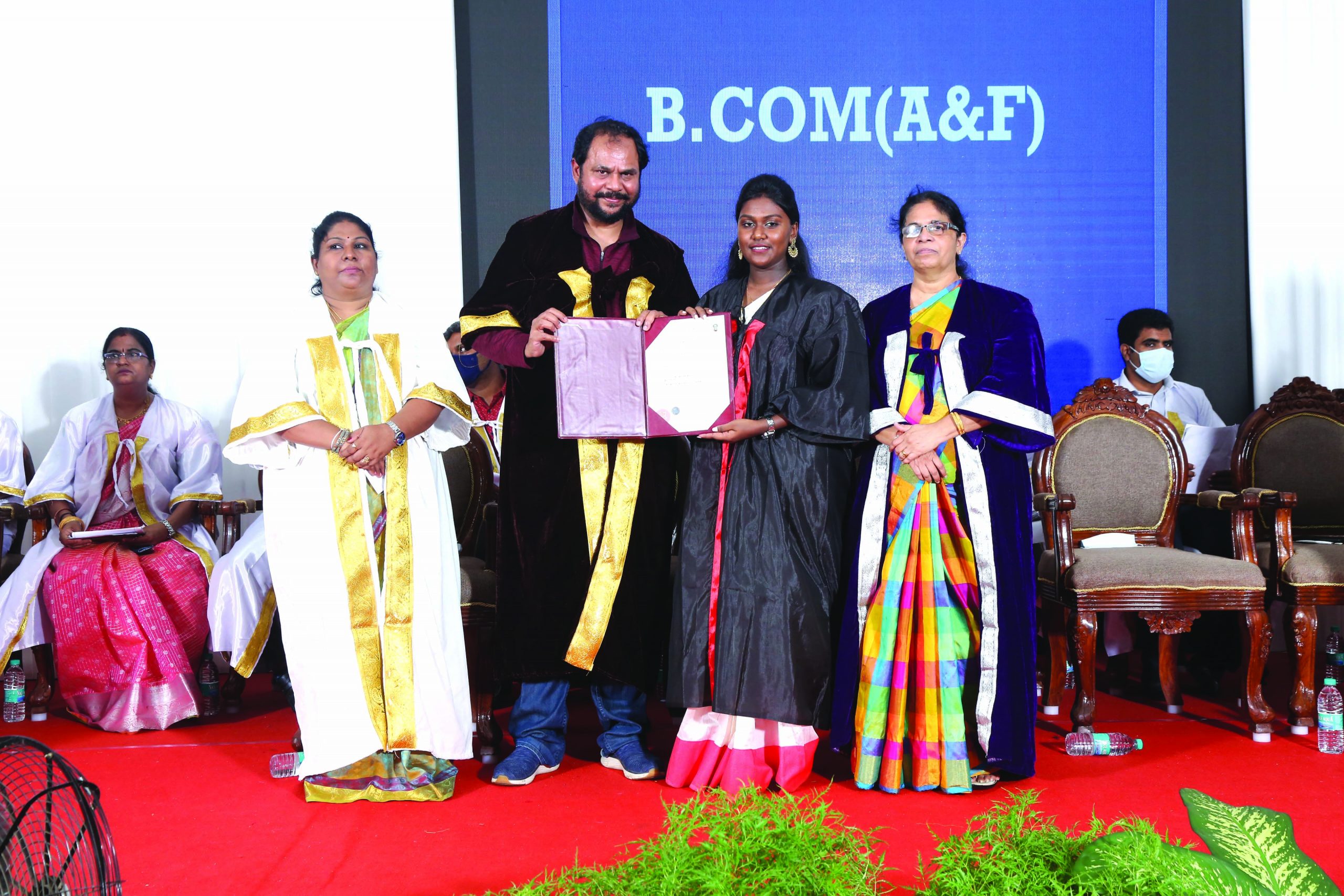Although several colleges affiliated with Delhi University are the most popular and preferred countrywide and eminently eligible, they haven’t been conferred autonomous status and are tied to the apron strings of DU

St. Stephen’s, Delhi principal John Varghese
It’s a measure of the bewilderingly complex and irrational higher education regulatory system devised by post-independence India’s omniscient neta-babu brotherhood under the cloak of socialism, that while 871 (of 45,000) colleges countrywide have been conferred autonomous status, India’s most popular undergrad colleges — St. Stephen’s, Shri Ram College of Commerce, Lady Shri Ram College for Women, Miranda House — are non-autonomous institutions of tertiary education. Despite their proven track records of academic excellence, these among other colleges, providing infinitely superior education have been denied autonomy for decades. They are still tied to the apron strings of Delhi University and denied the freedom of syllabus design, to introduce new study programmes, recruit faculty and exercise the academic and operational flexibility awarded to less distinguished private and government autonomous colleges.
Paradoxically, some private non-autonomous undergrad colleges — especially of Delhi University — are the favourites of higher secondary school-leavers countrywide and attract a hailstorm of admission applications. Consequently for supply-demand reasons, they are obliged to prescribe sky-high cut-off grades in class XII board exams, and admit only a small minority of applicants with the highest scores in board exams. A substantial number among them were established over a century ago and have devised excellent teaching-learning and administrative systems.
The reasons why India’s most respected and preferred undergrad colleges — the high parameter ratings and total scores awarded by EW sample respondents to St. Stephen’s, Shri Ram College of Commerce, Lady Shri Ram, by far outstrips the totals of top-ranked private autonomous Arts, Science and Commerce (ASC) colleges — is a matter of conjecture and speculation because academics are reluctant to air their views on the subject. However, it’s pertinent to note that the majority of top-ranked non-autonomous ASC colleges are affiliated with Delhi University.
[userpro_private restrict_to_roles=administrator,customer]
“Delhi University is a Central government-funded institution which receives generous grants from the government-controlled UGC (University Grants Commission). Therefore, its affiliated colleges have superior infrastructure and well-paid, high quality faculty for which students pay paltry highly-subsidised tuition fees. By appointing pliant UGC chairmen and Delhi University vice chancellors, politicians and bureaucrats in the capital exercise great control over India’s best undergrad colleges, and their chits and/or phone calls can ensure admission for their favourites into them as students and faculty. They are very reluctant to give up this power. Those who control Delhi University ipso facto control its top-ranked affiliate colleges. Secondly, teachers’ unions grouped under DUTA (Delhi University Teachers Association) are opposed to collegiate autonomy. Autonomous colleges have the right to hire and fire lazy, incompetent teachers. On the other hand, tenure of affiliated non-autonomous college faculty is subject to the approval of DU and they can only be fired by the university. Thus teachers’ union members who receive large inflation-adjusted Pay Commission salaries, are in favour of the status quo. There’s safety in numbers,” says a young academic of a top-ranked Delhi college who prefers to remain anonymous.

Miranda House students
Nevertheless, this anomaly under which the country’s best ASC colleges are denied academic and operational autonomy is likely to be corrected soon. The National Education Policy (NEP), 2020 approved by Parliament last year, proposes to end the archaic university-colleges affiliation system under which some universities boast 600-700 affiliated undergrad colleges, most of them non-autonomous. Instead, NEP 2020 proposes the evolution of NAAC (National Assessment and Accreditation Council) approved colleges into autonomous, multi-disciplinary degree awarding universities in their own right by 2035. And although there is inevitable foot-dragging of this proposal, it’s logical to expect that Delhi University’s best curiously non-autonomous colleges — top-ranked in all media publications, including the EW league table of private non-autonomous colleges — will be the first to be conferred autonomous status.
In particular, five mainly undergrad colleges affiliated with Delhi University which have consistently topped the annual EW league table of private non-autonomous colleges — St. Stephen’s College, Shri Ram College of Commerce, Lady Shri Ram College for Women, Hindu College and Miranda House — are certain to be among the first to be disaffiliated and awarded university status.
Prof. John Varghese, the dedicated principal of St. Stephen’s College (SSC. estb.1881), is mystified why this top-ranked college’s 2017 application to UGC for grant of autonomous status has not received any response. Despite a UGC task force visiting and inspecting SSC in 2018, there has been a “frustrating silence” on the issue.
“Delhi University has formally adopted NEP 2020, but is silent on the issue of collegiate autonomy. It’s self-evident that a policy is best served when it is adopted in its completeness, rather than in bits and pieces. For an institution of the stature of University of Delhi, conferment of autonomous status to duly qualified colleges will send out a strong message regarding the seriousness with which the government and UGC intend to implement NEP 2020. Moreover, Delhi University will showcase itself as a progressive and mentoring institution of higher learning. For St. Stephen’s, grant of academic autonomy will help us forge ahead, even globally. Everyone wins if autonomy is granted,” says Varghese, an alumnus of Loyola College, Madras Christian College (Chennai) and English and Foreign Languages University, Hyderabad, who was appointed principal of India’s highest-ranked college in 2016.
That said, Varghese is unsurprised that SSC has been awarded the highest total score of any ASC undergrad college across all categories in EWIHER 2022-23. “St Stephen’s College is an institution like no other. I believe one of the main reasons why SSC stands head and shoulders above other undergrad education institutions is because of our unwavering commitment to excellence and service. All students are made to understand the privilege of studying here. The staff, both teaching and non-teaching, strive to live up to the standards expected and established over a hundred years of service,” adds Varghese.
In this connection, it’s notable that eight of India’s Top 10 private non-autonomous Arts, Science and Commerce colleges are affiliated with Delhi University and eminently eligible for autonomous status under NEP 2020. It’s a measure of the readiness of the Top 4 non-autonomous ASC colleges of DU — SSC, Shri Ram College of Commerce, Lady Shri Ram College for Women and Hindu College — for autonomy that this year the 4,067 EWIHER sample respondents have awarded all of them a greater total score than St. Xavier’s College, Mumbai, the country’s top-ranked private autonomous college.
It’s also noteworthy that four other non-autonomous DU colleges are ripe for autonomy — Miranda House (ranked India #1 under the Union education ministry’s NIRF Top 100 league table), Hansraj College ranked #6 (cf. #7 in 2020-21), Sri Venkateswara College #8 (#9), Jesus & Mary College #9 (10) . Only two private colleges outside Delhi — KPB Hinduja College of Commerce, Mumbai at #7 (6), and #1 in Maharashtra (#6), and University College of Arts & Social Science of Osmania University, Hyderabad at #10 (8) — are ranked in the EW Top 10 league able of private non-autonomous ASC colleges.
Even beyond the Top 10 table, colleges under close supervision of Delhi University have improved their 2022-23 rankings. They include Kirori Mal College #11 (12), Kamala Nehru College #12 (15), Ramjas College #14 (18) and Gargi College #15 (26).

Patrician College’s Dr. Usha George
Among the Top 20 ASC non-autonomous colleges, an institution which has risen high in the esteem of EW sample respondents is the low-profile Patrician College of Arts & Science, Chennai, (PCASC, estb.2002) elevated to #18 (30).
Dr. Usha George, principal of this college affiliated with Madras University, attributes PCASC’s big promotion to the college’s “visionary and empathetic management, loyal, competent and committed faculty and supportive parents-alumni network”. “In addition, I believe that our state-of-the-art infrastructure and dedicated outreach services catering to large geographical areas and communities have enhanced the reputation of PCASC in recent years. Under NEP 2020, PCASC is eligible for autonomy and we welcome it. Academic autonomy will enable us to enrich and diversify our academic programmes in partnership with premier institutions in India and abroad,” says George, an alumna of Madras University, who was appointed principal of this ASC college in 2019. Currently, PCASC has 3,300 students and 134 faculty on its muster rolls.
Contrary to popular opinion, beyond Delhi and the metros there are well-reputed non-autonomous ASC colleges which are likely to be awarded autonomy in the near future. For instance, DAV College, Amritsar which has been given a huge promotion from #30 in 2020- 21 to #17 this year which makes it the #1 non-autonomous ASC college in Punjab (pop.28 million). However, a spate of e-mail messages and telephone calls to S.K. Arora, principal of the college, failed to divert his focused attention from academic and administrative duties to share his reaction and future plans with your editors.
Ditto Pargat Singh Garcha, principal of Punjab’s G.H.G. Khalsa College, Ludhiana which has also been awarded a big promotion to #28 (43) nationally and #3 in Punjab. The deep focus of these academics on institutional development augurs well for Punjab whose electorate has overwhelmingly swept the Aam Aadmi Party (AAP) to power in the recently concluded legislative assembly elections. AAP is perhaps the sole political party countrywide to accord high importance to education and human capital development.
Similarly, there are non-autonomous ASC colleges across the country which although modestly ranked nationally are top-ranked in their states. For instance, the low-profile Barrackpore Rastraguru Surendranath College, Kolkata, nationally ranked #10 is West Bengal’s #1 private ASC non-autonomous college, and likely to be conferred autonomous status in the near future. Ditto Ahilya Mahila P.G. College, Varanasi ranked #23 in India but #1 in Uttar Pradesh (pop.215 million) and Sai International College, Bhubaneswar #27 nationally and #1 in Odisha (pop.43 million).
With the asphyxiating stranglehold of the educracy and government-controlled affiliating universities over private ASC colleges across the country likely to be broken in the near future, a renaissance in liberal arts and sciences is imminent.
Also Read:












Add comment